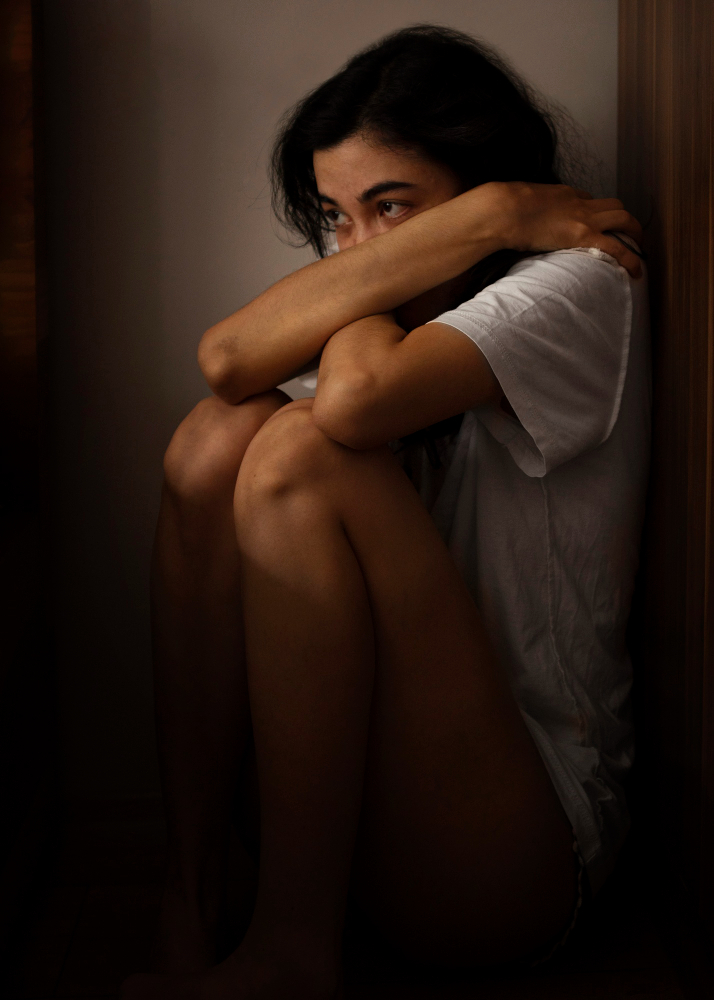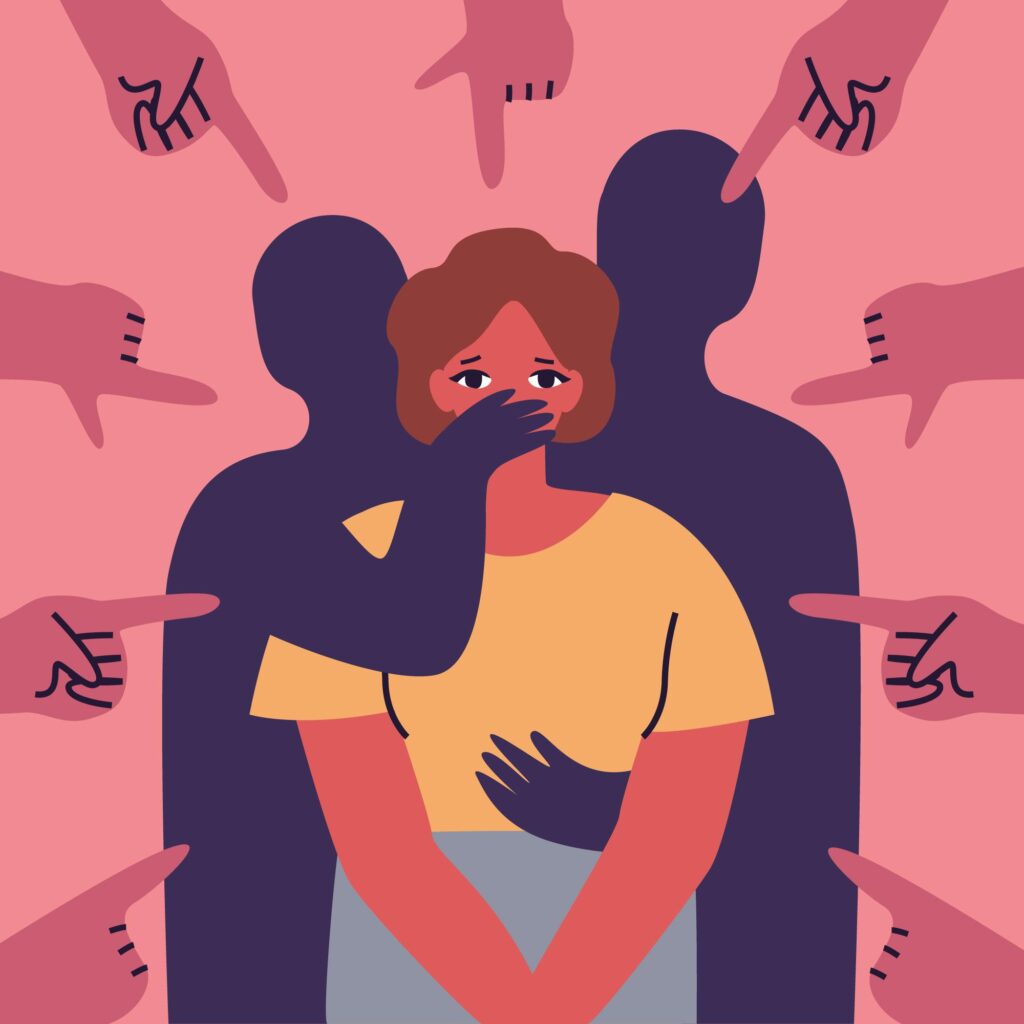Prostitution is a multi-layered phenomenon which is often discussed under the guise of “voluntary choice”. Upon closer examination, however, it becomes clear that economic needs and a lack of education are among the main reasons why women in particular turn to sex work. In many cases, the “decision” to become a prostitute is not so much a decision as the result of structural inequality and social desperation. Today’s post examines how social and educational poverty favour entry into prostitution, and why social and political responses are urgently required.
Poverty as driver of prostitution
Women who have no job perspectives in their home countries become particularly vulnerable to offers from abroad. Many come in the hope of a better life – and end up in coercive relationships or prostitution. Poverty forces them to consider their body as a “good”, to be sold in order to survive. Many women from countries such as Romania, Bulgaria and Hungary are fleeing poverty at home, and end up in prostitution. They earn money to support themselves and their families. The difference between voluntary and forced prostitution is often fluid, as economic pressure sharply restricts freedom of decision-making. Everyday life for these women is often shaped by violence, particularly at the hands of the human traffickers who lure them to the West with false promises. One central example of this is provided by the experience report of a Bulgarian woman who came to Germany, together with her husband, to find work. In the absence of alternatives and under pressure to provide for her family, she decided to become a prostitute. She reports: “I responded that we have no alternative, because we have no money.” This statement highlights how economic pressure massively restricts freedom of decision-making and forces women into sex work.
Austria and women at risk of poverty

Women in Austria are affected by poverty at an above-average rate – and it is exactly this economic disadvantage that is a key risk factor for entering into prostitution. According to national statistics office Statistik Austria, women living alone and lone carers are particularly vulnerable to poverty: Around 41% of single-parent households – most of which are led by women – live in poverty or social exclusion. The charity Caritas also emphasises that 565,000 women in Austria are endangered by poverty and over 140,000 are extremely poor – a reality which impacts lone parents and those receiving a minimum pension particularly hard. This structural disadvantage doesn’t just create economic pressure, however; it often robs women of any alternative for ensuring their livelihood, so that prostitution becomes the final option for many. Vienna Business School also points out that the level of poverty risk amongst women is systematically underestimated, since household measures conceal gender-specific inequalities.
Learning deficits as risk factor

Women caught in “poverty prostitution” often have little or no education or job training. They have no professional self-management, and very rarely have realistic plans for the future. These factors make them particularly vulnerable to being exploited, and it becomes significantly more difficult to escape prostitution. As well as this, they often don`t know their rights and do not know the local language – creating the perfect preconditions for those wishing to exploit them.
Inherited lack of opportunity
Poverty and educational disadvantage are closely linked in Austria, and often passed on down the generations. The Momentum Institute reports that one in five children is endangered by poverty in Austria, meaning he or she is growing up in a household already affected by poverty or at high risk of being so. This structural disadvantage begins early and continues in the education system, which tends to strengthen rather than balance out these social differences. Children from families at risk of poverty have sharply lower chances of achieving higher educational qualifications, significantly restricting their job perspectives and income possibilities.
A lack of alternatives and the vicious circle of prostitution
For many women, the points described here of poverty and a lack of education mean they become caught in a vicious circle of missing alternatives, making them vulnerable to exploitative working conditions, including prostitution. The combination of economic need and a lack of education often leaves them with no choice but to use their body to ensure a life income. As a result, most of those affected see no alternative to prostitution, since they lack any life or employment alternatives. They bear financial responsibility for their families in their home countries, and are often socially or emotionally linked to their networks of pimps and friends. These dependencies make it significantly more difficult to escape prostitution. As a result, it is clear that poverty and educational disadvantage doesn`t just shape individual life paths, but also worsens wider social challenges such as entering poverty prostitution.
Conclusion
This examination of the life realities of women caught in prostitution clearly shows: It is rarely a free and self-determined decision, but a reaction to social inequality, a lack of education and economic desperation. Poverty is not just a temporary lack of money, but a lasting criterion for exclusion from social participation. Educational disadvantage and inherited poverty create structural hurdles at an early stage which have a dramatic effect later in life. Prostitution is not so much a free choice, then, but an emergency solution in a system which reveals failures at the political and social level.
Translated by Tim Lywood
#ArmutundProstitution #FraueninderProstitution #BildungsarmutÖsterreich #Armutsprostitution #UrsachenProstitution #FrauenarmutÖsterreich #ProstitutionundBildung #sozialeUngleichheitFrauen #Armutsmigration #ZwangsprostitutionUrsachen #AgainstHumanTrafficking #GegenMenschenhandel #EndExploitation #EndTrafficking #HopeForTheFuture #Österreich
